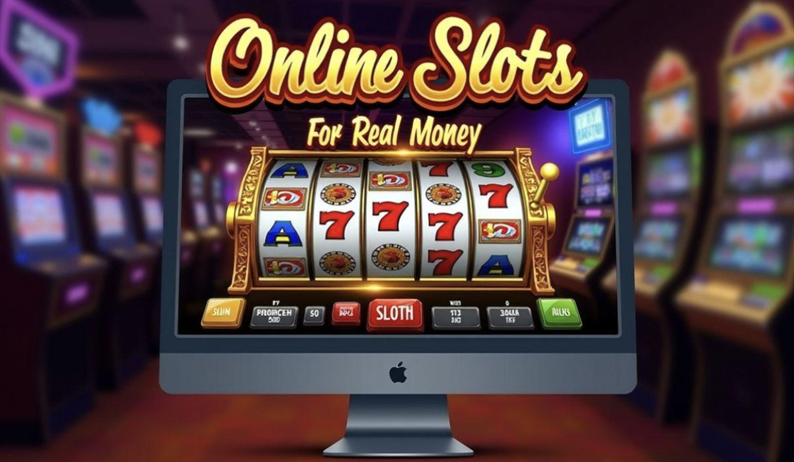Online gaming has evolved into a thriving billion-dollar industry, blending cutting-edge technologies with innovative gameplay experiences. As we look beyond 2025, the industry is poised to expand further, driven by advancements in artificial intelligence, blockchain, virtual reality, and the metaverse. Here’s a glimpse into the trends and technologies that could shape the future of gaming in the coming decades.
1. Hyper-Immersive Experiences
Virtual Reality (VR) and Augmented Reality (AR) will push boundaries, creating hyper – immersive environments where players can fully engage with the gaming world. Technologies like full-body haptic suits and neural interfaces could enable players to physically feel the game world and interact with objects as though they were real.
For example, players might compete in VR tournaments that mimic real-world sports arenas, giving a sense of presence and realism unlike ever before.
2. AI-Driven Personalized Gameplay
Artificial intelligence will revolutionize gaming by analyzing player behavior to provide personalized experiences. From adaptive storylines to real-time strategy tips, AI will create dynamic gameplay tailored to individual preferences.
Imagine a game that learns your skill level and challenges you with enemies or puzzles that are neither too easy nor too difficult, ensuring maximum engagement.
3. Blockchain Gaming and Play-to-Earn Models
Blockchain technology will redefine ownership and monetization in gaming. Players will have control over in-game assets, which can be traded or sold as NFTs (Non-Fungible Tokens). This decentralization will blur the lines between gaming and real-world economies.
Games could introduce virtual currencies backed by blockchain, allowing players to earn and spend across platforms. For instance, rare collectibles in one game might become valuable commodities in the larger gaming ecosystem.
4. Cloud Gaming’s Next Phase
Cloud gaming is set to expand further with the widespread adoption of 5G and beyond. By eliminating the need for powerful hardware, cloud gaming will make high-quality titles accessible to anyone with an internet connection.
This technology will allow seamless gameplay across devices, enabling players to start a game on their phone during their commute and continue on their TV at home.
5. Cross-Platform Play as Standard
Cross-platform compatibility will become ubiquitous, breaking down barriers between consoles, PCs, and mobile devices. Players will seamlessly interact and compete with others, regardless of their chosen device.
This will lead to unified gaming communities, enhancing multiplayer experiences and opening up new collaboration opportunities for developers.
6. Esports and Its Growing Influence
Esports will continue to grow exponentially, merging with mainstream entertainment. Tournaments will become global spectacles, attracting millions of viewers and generating significant revenue streams.
Professional esports players may become household names, and the industry might see the development of dedicated esports leagues for different game genres, much like traditional sports.
7. Metaverse Integration in Gaming
The metaverse will redefine social interactions in gaming, offering persistent virtual worlds where players can work, socialize, and play. Games will become hubs for broader activities, from virtual concerts to digital marketplaces.
Players could explore interconnected worlds, attending events or creating custom avatars that persist across multiple games and platforms.
8. Sustainability in Gaming
As environmental concerns grow, the gaming industry will adopt greener practices. Energy-efficient servers, sustainable packaging, and digital distribution will become standard, ensuring the industry reduces its environmental impact.
Players may also see in-game events supporting environmental causes, such as reforestation efforts funded by game purchases or challenges.
9. Gamification of Life and Skill Development
Gamification will extend beyond entertainment, blending gaming mechanics into education, work, and personal growth. By 2030, games may be designed to teach practical skills, improve reflexes, or encourage healthy habits.
For example, fantasy platforms like Tiranga Game could evolve to include modules that teach users about statistics and decision-making in real-time. Similarly, MPL might introduce games that enhance problem-solving and strategic thinking, making gaming both fun and educational.
10. Predictive Analytics and Real-Time Updates
Advancements in data analytics will provide real-time updates and insights, making games more dynamic. From live-action decision-making in sports games to evolving narratives in RPGs, predictive analytics will bring new layers of interactivity.
This will be especially impactful in multiplayer games, where real-time data will enhance collaboration and competition.
Takeaway
The future of online gaming holds limitless possibilities. With technologies like VR, AI, blockchain, and the metaverse, gaming will continue to blur the boundaries between the virtual and real worlds. Platforms such as Dream11 and MPL are already paving the way by blending entertainment with skill development, hinting at how games could shape the future of learning and engagement.
As gaming becomes more immersive, sustainable, and integrated into everyday life, it’s clear that this billion-dollar industry is only at the beginning of its journey. Beyond 2025, gaming will not just entertain – it will innovate, educate, and connect us in ways we’ve only begun to imagine.









